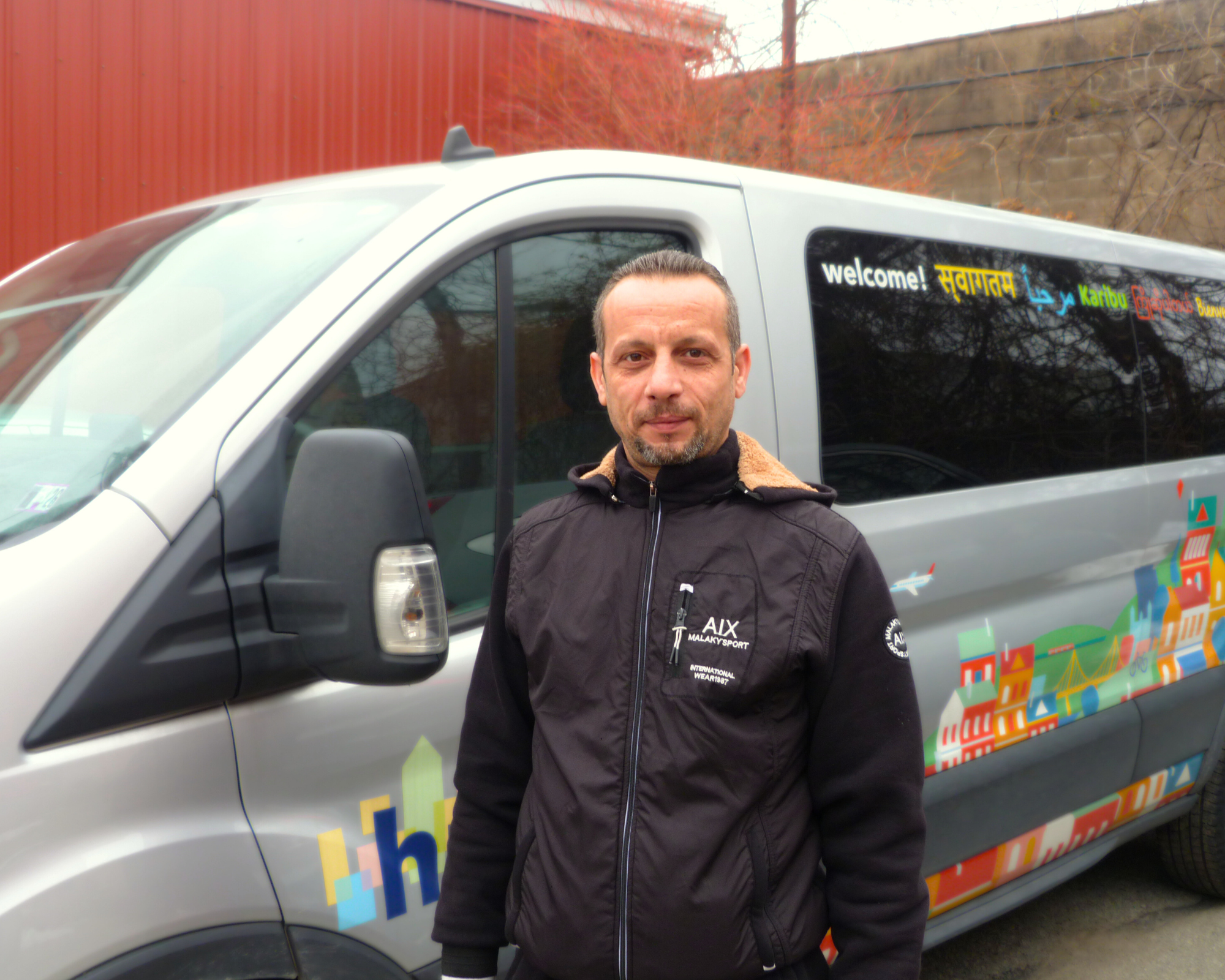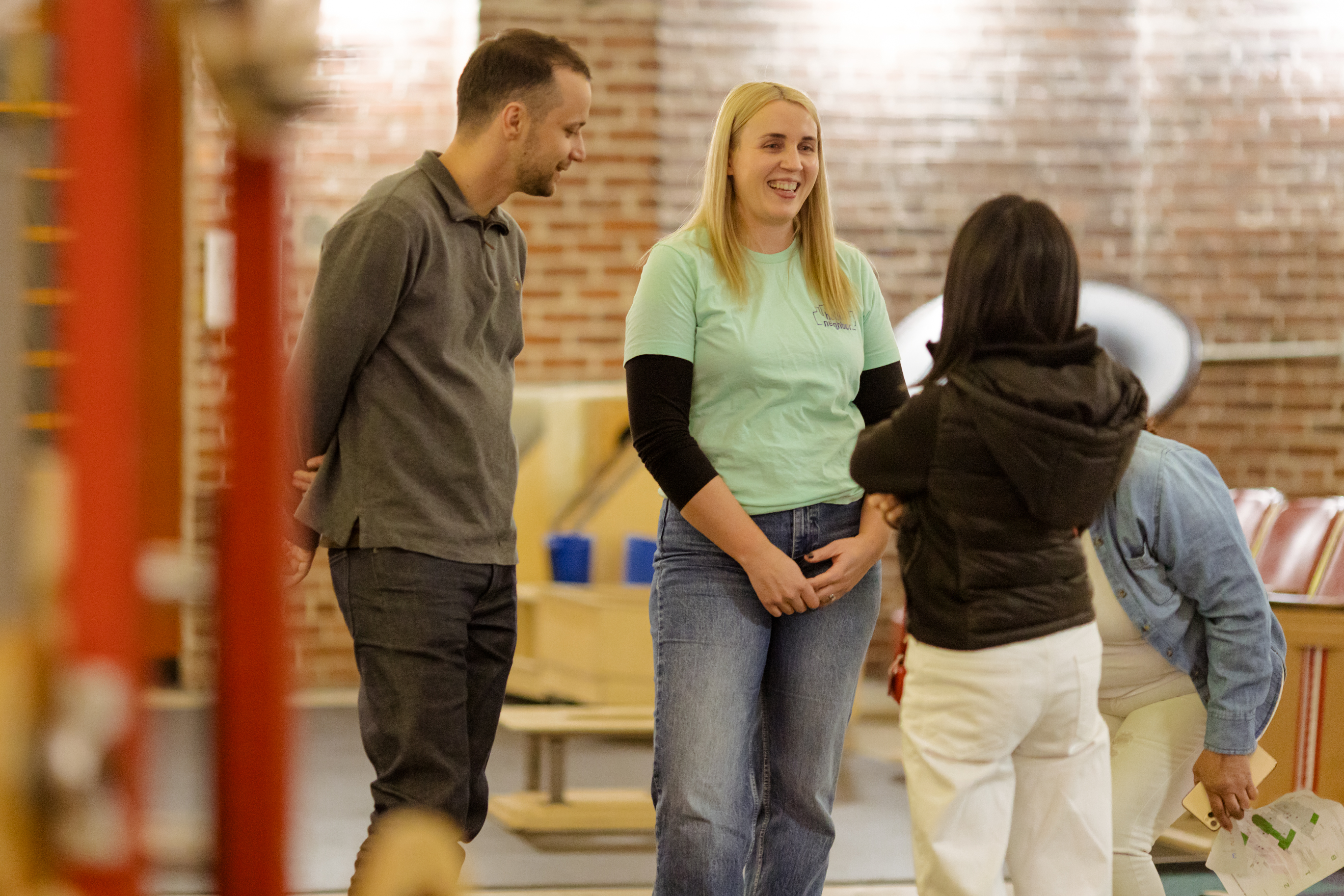Meal Train Letter of Gratitude
Letter of gratitude from case worker Maria Camila Arbelaez-Solano to volunteers who prepare and deliver meals for new mothers.

January 18, 2024
Dear volunteers,
Thank you for choosing to show up for our mothers and our families. Nothing you do is ever too small. Your sincere dedication is a reminder that an interconnected community that nurtures and uplifts mothers, babies, families can be birthed back into existence in our modern lives, in our neighborhoods, in our city.
As I watch our network of support grow and deepen, I picture a spiral of nurturance and protection unfolding from the root, that is, from the heart around each mother and child. From that root our relationships and our convictions unfold like ferns into beautiful, new possibilities that grow despite what happens in our health care systems, the policies that affect us, and the political struggles we are witnessing.
Much of what we do happens in private, at homes, in kitchens, at hospital rooms, largely in the realms of refugee and immigrant mothers that are often unseen and ignored by the outside world.
Yet to me, this world of mothers is the center of everything, of all other worlds.
Beautifully, as we remain firm in our focus on the health of our collective homes, nurturing relationships, families and communities we do end up influencing the outside world! Our efforts are seen and our health care systems, policies, political struggles and conflicts learn from us, and start to change.
I cannot speak of the heart without speaking of the stomach. There is almost no better way to nurture a mother, body and soul, than to actually, physically nurture her- to feed her! I cannot overstate the importance of food during pregnancy, birth and postpartum. The first sips of broth that she can handle during severe first trimester nausea, the strange and delightful cravings and aversions as the baby grows (one mom told me once "my baby only likes cake" during our discussion on gestational diabetes), the return to sips of broth or electrolytes during labor, the first warm meal after the baby is here that helps calm an insatiable thirst and a heroic exhaustion, all of these foods keep burning the fire of creation and transformation.
In the hardest moments a mother sometimes has to face, moments of pain, loss and grief, quietly ensuring she stays fed is often better than anything we can think to say. In the happiest moments, it allows us to celebrate and uphold life. In all moments, food, especially traditional, intentional food, keeps our communities alive. Who is there holding the spoon up to mom? What is she eating, what is she craving, who prepared it, where did it come from?
For so many mothers around the world, food has been lovingly (and sometimes strictly and with a scolding of why are we not eating well enough?!) prepared by aunties, sisters, cousins, grandmothers and fathers, as well as loving partners, and grown on beloved land.
Feeding a mother is an art that all peoples around the world once developed, not only as an expression of love, but as a means of protecting the life of the mother and the new baby to ensure the longevity of the family line and humanity itself.
Hospitals and medicalization of birth is a fairly new development in human history, for most of our story on earth, traditional midwives and family members utilized culturally and regionally specific food and herbs as medicine and fuel to nurture a mother in every stage of her reproductive journey.
We can see this living tradition in carefully crafted recipes that endure in homes and hospital rooms to this day, such as Afghan Letee, a sweet and rich wheat and nut based porridge traditionally given to mothers immediately after birth, Korean Miyeok Guk a seaweed soup helpful for lactation (and so many other examples of traditional lactation boosting soups around the world!) based in Chinese Traditional Medicine, Caldo de gallina, a rich chicken soup with regional variations across Latin America, and so many more.
These recipes are a reminder of our ancestors, the ingredients of our homes, the hands of our loved ones who used to prepare them, and they are a vehicle for mothering the mother. They tend to be warm, nutrient rich, easy to digest, and magical.
I have seen the hospital rooms of Magee come to life with the aromas of traditional foods brought by friends or neighbors, a welcome contrast to the cold packets of Jello, ice-cold water and crackers that make up the most readily available foods at Labor and Delivery. I have seen the light and relief on mothers' faces when they take the first bite or sip that nourishes the body, the soul, and transports them home once more. Sometimes, especially for us who have been separated from our homelands and families, food is the most powerful vehicle we have to be connected to our roots and our hearts.
Thanks to you all, our mothers whose aunties, sisters, cousins parents and grandparents are not able to be here with them in their journey to their children, will still have someone holding up a spoon of beautiful, warm, delicious, magical and familiar food to them. The Meal Train helps more than I can say. It helps us show our moms that they are not alone. It is radical (from the root), and revolutionary (unfolding like a spiral). May it grow and endure!
Thank you for your intentionality in feeding our moms through their journeys through pregnancy and parenthood. Thank you Aubrey for kindly and thoughtfully researching culturally appropriate recipes and restaurants to help us feed our moms well. Onward we go!
Gratefully yours,
Maria Camila Arbelaez Solano
NOTE: Would you like to support new mothers through meal deliveries? Reach out to the Volunteer & Community Engagement Manager here.




.jpg)
.png)